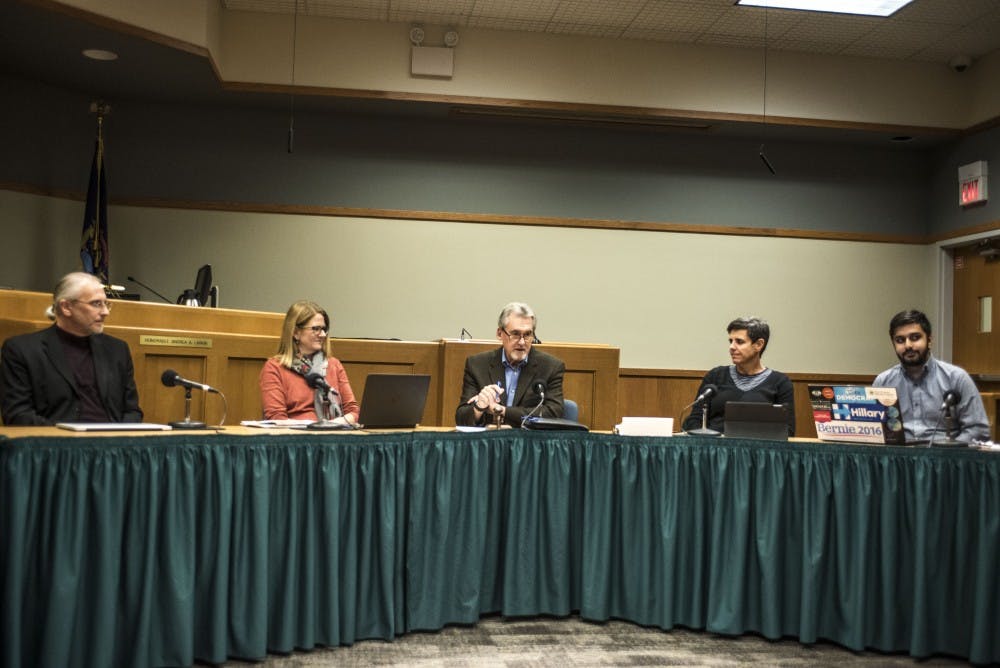Street funds, utilities and waste disposal were the main subjects of discussion at Tuesday's budget work session. Here are the highlights of what Director of Public Works Scott House presented to East Lansing City Council:
Streets

Street funds, utilities and waste disposal were the main subjects of discussion at Tuesday's budget work session. Here are the highlights of what Director of Public Works Scott House presented to East Lansing City Council:
Streets
There are plenty of major and local street projects scheduled — more than last year, as a result of revenue increases, House said.
In addition to adding bike lanes as part of the Harrison Road "road diet" discussed at the last council meeting, the city is looking to invest in other non-motorized transportation as well.
Albert Street is in line to receive improvements to make street crossings more accessible for disabled residents. The city also intends to continue funding the Safe Routes to School program, intended to encourage students to walk or bike to school, with the East Lansing School District.
However, he added that there likely will be a gap between state funding and local street spending in the near future.
No such gap was budgeted for 2019, but starting in 2020 House said state funding would lag nearly $700,000 behind East Lansing's needs — which could leave city-funded streets without important repairs.
"It shows a need. If we don't have that money, our local streets are never going to improve," House said. "If they do, it will be ever so slightly."
Utilities
Plans to build a $31 million anaerobic digester at the Water Resource Recovery Facility are in the beginning stages.
An anaerobic digester heats up waste, which allows it it to decompose and produce methane that can be captured for fuel. MSU's south campus digester, completed in 2013, generates enough energy annually to power Holmes Hall, according to the university's Infrastructure Planning and Facilities department.
The digester would be built in lieu of a $28 million plan to send sludge from the facility to landfills, making it a reasonable and more environmentally-friendly choice, House said. The methane gas created by the digester could save $650,000 on electrical costs and would be able to power essential operations at the plant.
Mayor Mark Meadows said the digester plans marked "a major step" toward getting East Lansing to be completely dependent on renewable energy. The digester could be up and running as early as summer 2021.
House also suggested the city raise its water fees by 10 percent to self-fund projects like $1.23 million in water main replacements along Durand Street and Cornell, Evergreen and Stuart avenues.
Waste
There will be no millage increase for the city's handling of solid waste, but House said he does expect recycling costs to increase as a result of contract negotiations for processing and pick-up.
House said the city's Styrofoam recycling program has been a success — 500 pounds of the material have been received per week since the drop-off station opened on March 8.
"You've got to see the pile when we come in in the morning," House said. "There's like two trash trucks full of styrofoam in bags."
Moving forward
The last work session before MSU breaks for the summer is scheduled for May 1 at 5:30 p.m. A public hearing on the budget is planned for May 9 and final approval of the budget will occur on May 22.
Support student media! Please consider donating to The State News and help fund the future of journalism.